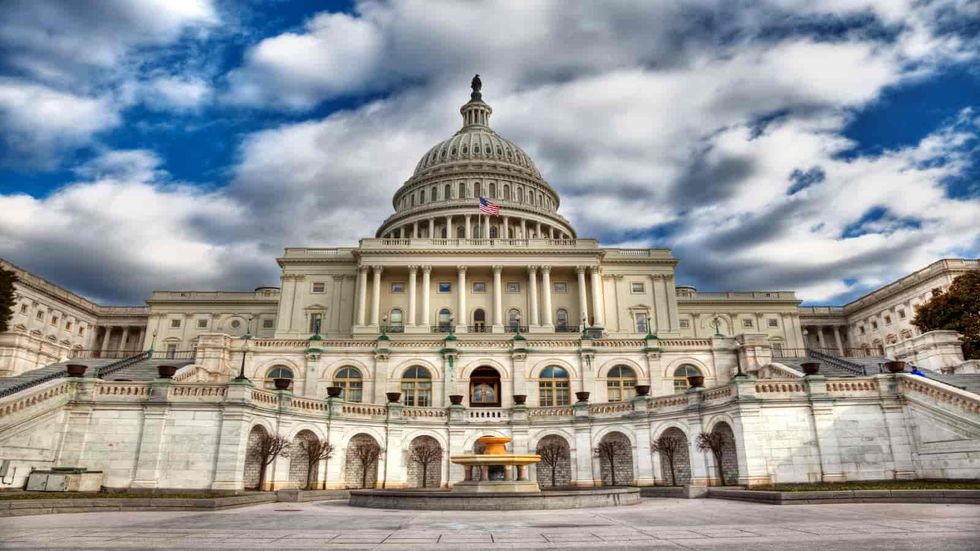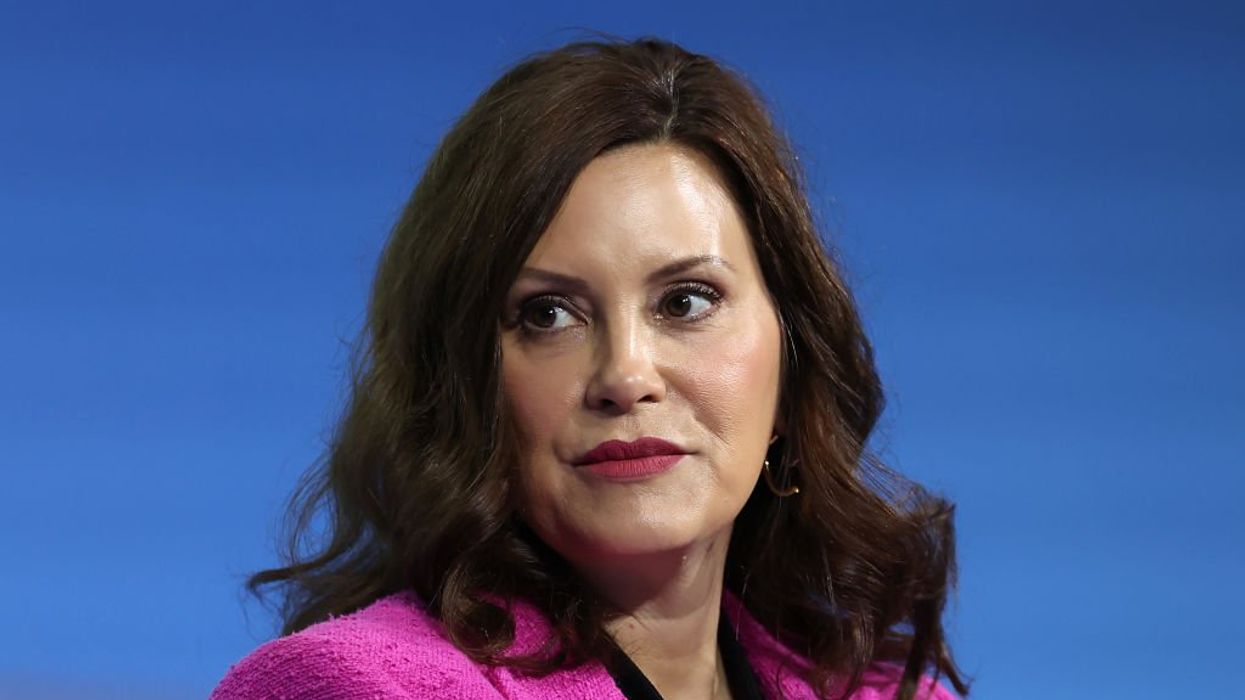
© 2024 Blaze Media LLC. All rights reserved.
“I believe in only one thing: liberty; but I do not believe in liberty enough to want to force it upon anyone.”
-- H.L. Mencken
It seems like a particularly appropriate day to shatter the popular mythology of “good government.”
This is the idea that the goal of politics is to elect the right people—good people. You know, people like us. These good guys will use their power for the public good. Both advocates on the “left” and “right” cling to the hope that we can elect someone better able to wield power in ways we would want them to. Who can wear the gold ring of unlimited power and not be corrupted? No one wants to vote for Gollum, who covets the power of his “Precious,” and ultimately wields power in murderous ways. No, we keep hoping to find Frodo, the one good enough to wear the ring judiciously, the one able to show restraint, able to finally do the right thing with all of that government power.
Among Republicans, Donald Trump is starting to look unbeatable following the Super Tuesday beauty contest, where style over substance, and implausible promises made loudly in the first person, seem to hold sway. He wants you to believe that he can rise above the petty special interests, that he is smarter and better than the rest. Give me power, The Donald says, and I alone will get you a better deal. Everyone else is too dumb or too incompetent. He wants the gold ring that much.
Among Democrats, Hillary Clinton seems almost inevitable, despite the fact that her only sellable attribute seems to be that she has been waiting in the queue of familial succession for a really long time. For many Democratic primary voters, she is utterly unappealing. She is for censoring speech online, she engineered disastrous “regime change” in Libya, and seems indistinguishable from many neoconservatives in her aggressively interventionist foreign policy. The Clinton Foundation is nothing but a Who’s Who of crony capitalists. She’s “not a socialist” like Bernie Sanders, she insists. But she is unable to explain any meaningful difference between her views and his. In her own way, she is just as inauthentic as Donald Trump, sans the charisma. But she covets the Precious just as much as he does.
In grade school we are taught that the political spectrum runs right to left, with fascist authoritarianism on one extreme and utopian socialism on the other. “The far right” is characterized as self-serving, nationalist and nativist (even racist), with a powerful few ruling over “the masses” with the iron authority to govern personal conduct, social mores, and public values. “Fascism,” in the parlance of our time, seems to favor the privileged few – the rich, the crony capitalists, and the wealthy oligarchs – at the expense of the people.
On the other extreme – the far left – of the conventional political spectrum is socialism, a system that distributes things “from each according to his ability, to each according to his need.” Socialism, in turn, aspires to real communism and the “withering away” of government power. This bizarre hypothetical, employed by Karl Marx and Vladimir Lenin, originates with Marx’s co-author of “The Communist Manifesto,” Friedrich Engels:
The interference of the state power in social relations becomes superfluous in one sphere after another, and then ceases of itself. The government of persons is replaced by the administration of things and the direction of the processes of production. The state is not ‘abolished,’ it withers away.
In this fanciful design, socialism is “extreme” mostly in the sense that it is hopelessly naive and unachievable in practice. Honest historians will acknowledge the unconscionable body count of the victims of various attempts to get to a communist utopia, but clingers to socialist ideology will inevitably tell you that it just hasn’t been tried yet. You can certainly hear versions of this fantasy among Bernie Sanders’s grassroots ranks.
This right-left matrix has never really made any sense, and it has led to great confusion. Perhaps this is why Hilly Clinton could not explain to Chris Matthews the difference between a Democrat and a socialist. “I’m a progressive democrat,” she finally sputtered.
Ok, so what is the difference between a progressive and a socialist? Not that much, if you were to use a different ideological matrix, one that measures the extent to which government power is employed to rearrange things from the top down. At one extreme is complete authoritarianism and government control. Here is where many of the deadly “isms” reside: Socialism, Communism, Islamo-Fascism, Nazism. Redistributing individual outcomes based on some greater ideological purpose will always require a lot of centralized power and the threat of force. Progressivism is the same authoritarian ideology, but with better intentions. It assumes the best and brightest, from all the right families with all the right educational pedigrees, should be trusted with an immense arsenal of discretionary government powers.
The opposite of this is liberty, and individual freedom, and free expression, and diversity, and voluntary cooperation. Totalitarianism, regardless of your wishful thinking in the voting booth, never comes with a smile. We Americans are particularly jealous of our individuality, our diversity, and our unique attributes that make each of us a little different, a little special – a free individual.
So let’s not confuse our terms. Concentrated power, arbitrarily enforced by those in power, is the opposite of liberty. The discretionary rule of man over men is the opposite of the rule of law. Rules that enshrine equal treatment under the law, freedom of speech, and your right to be left alone as long as you don’t hurt people, or take their stuff – these are practical measures of your freedoms.
There is no such thing as “good government.” There is only limited, restrained government, and unlimited government. The question of all politics, measured on this spectrum, is simple: Who will best respect your liberty, and faithfully live within the constitutional constraints designed specifically to limit the abuse of government power? Anything else is tyranny, regardless of the political flavor of the month.
Want to leave a tip?
We answer to you. Help keep our content free of advertisers and big tech censorship by leaving a tip today.
Want to join the conversation?
Already a subscriber?
more stories
Sign up for the Blaze newsletter
By signing up, you agree to our Privacy Policy and Terms of Use, and agree to receive content that may sometimes include advertisements. You may opt out at any time.
© 2024 Blaze Media LLC. All rights reserved.
Get the stories that matter most delivered directly to your inbox.
By signing up, you agree to our Privacy Policy and Terms of Use, and agree to receive content that may sometimes include advertisements. You may opt out at any time.


